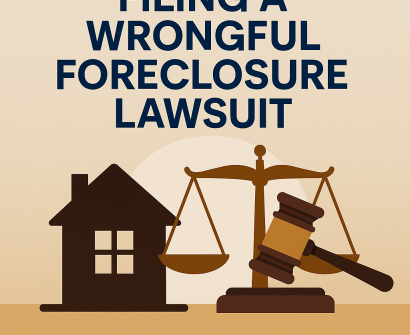Currently Empty: $0.00
Winning a Traffic Ticket Without a Lawyer
Slug: fight-traffic-ticket-without-lawyer
Meta description: Learn how to fight a traffic ticket without a lawyer by understanding your citation, gathering evidence, negotiating with the prosecutor and presenting a strong case in court.
Introduction
Getting pulled over and handed a traffic ticket can feel like an expensive nightmare. Court costs and increased insurance rates make even a minor infraction burdensome. But did you know you can often fight a traffic ticket without hiring an attorney? If you decide to fight a traffic ticket without a lawyer, you can save money and preserve your driving record — but only if you prepare properly. This article explains how to evaluate your ticket, collect evidence, negotiate with prosecutors and present your case in a way the judge will respect.
Understand the Charge and Possible Consequences
First, carefully read your citation. It lists the statute you allegedly violated, the date and location of the violation, and the court date. Look up the statute online to understand the elements of the offense. For example, speeding tickets often specify the posted speed limit and your alleged speed. If you were cited under a local municipal ordinance, check the city’s website. Fighting a traffic ticket without lawyer assistance means you must know the law yourself.
Most citations include instructions for payment or contesting the ticket. If your state offers mitigation hearings — where you admit the violation but explain circumstances — decide whether a reduction in fine is enough. If you want the ticket dismissed entirely, you will need a contested hearing or trial.
Decide Whether to Contest or Negotiate
Fighting a ticket takes time and effort. Consider whether the cost of missing work and preparing your case outweighs the potential savings. Check your driving record; if you already have points, another conviction could raise insurance premiums or lead to license suspension. Also consider whether you can negotiate a non-moving violation or traffic school in exchange for a dismissal. Negotiating with the prosecutor often reduces fines and prevents points, without needing a full trial.
If you decide to contest, make sure you respond within the time frame stated on the citation. Many jurisdictions allow you to mail in a plea of not guilty. Others require you to appear in person or online to enter a plea. Missing this deadline can result in a default judgment.
Gather Evidence and Prepare Your Defense
The key to fighting a traffic ticket without a lawyer is gathering evidence. Start by requesting the officer’s notes or the discovery packet. In many states, you have a right to see calibration records for radar guns or lidar devices. You can also return to the scene and take photographs. Measure road markings and visibility. If the speed limit sign was obscured by foliage, take pictures showing the obstruction.
Witness statements help too. Was a passenger in your car? Did someone else observe the incident? Ask them to write down what they saw and sign and date the statement. If there were road construction or detours, collect information from government websites or news articles. Bring everything to court neatly organized in a folder.
Question the Officer’s Observations
At trial, you’ll have the opportunity to cross-examine the officer. Prepare specific questions that highlight weaknesses in their testimony. For example:
- Visibility: Were there obstructions blocking the officer’s view of your vehicle?
- Calibration: When was the radar gun last calibrated? Do they have documentation?
- Identification: How did they identify your car among other traffic?
- Training: Are they trained to operate the speed-measuring device?
You don’t need to be aggressive. Judges appreciate respectful, concise questions. The goal is to raise doubts about the officer’s ability to accurately observe the violation.
Negotiation and Courtroom Etiquette
If you prefer to negotiate, arrive at court early and ask to speak with the prosecutor or officer. Explain that you’d like to keep your record clean. Offer proof of a clean driving history or completion of a defensive driving course. Often prosecutors will amend the charge to a non-moving violation or agree to deferred findings if you pay court costs.
When entering the courtroom, dress professionally. Arrive early to observe how the judge conducts other traffic hearings. Address the judge as “Your Honor,” stand when speaking, and keep your statements focused on facts, not emotion. Judges may appreciate that you fight a traffic ticket without lawyer representation, but only if you demonstrate respect and preparation.
Presenting Your Case
When your case is called, you can give an opening statement summarizing your argument. Then the officer will testify. Take notes and ask cross-examination questions as discussed above. After the prosecution rests, present your evidence and witnesses. Explain any documents or photographs clearly. Remain calm, speak slowly and keep your arguments organized. You want the judge to follow your logic easily.
In your closing argument, briefly restate the major points: the legal standard for the violation, the evidence you presented showing you did not commit the violation, and any doubts about the officer’s testimony. Thank the judge for their time.
Conclusion
Fighting a traffic ticket without a lawyer is entirely possible if you understand the process and invest time in preparation. Start by carefully reading your citation and researching the Winning a Traffic Ticket Without a Lawyer
Slug: fight-traffic-ticket-without-lawyer
Meta description: Learn how to fight a traffic ticket without a lawyer by understanding your citation, gathering evidence, negotiating with the prosecutor and presenting a strong case in court.
Introduction
Getting pulled over and handed a traffic ticket can feel like an expensive nightmare. Court costs and increased insurance rates make even a minor infraction burdensome. But did you know you can often fight a traffic ticket without hiring an attorney? If you decide to fight a traffic ticket without a lawyer, you can save money and preserve your driving record — but only if you prepare properly. This article explains how to evaluate your ticket, collect evidence, negotiate with prosecutors and present your case in a way the judge will respect.
Understand the Charge and Possible Consequences
First, carefully read your citation. It lists the statute you allegedly violated, the date and location of the violation, and the court date. Look up the statute online to understand the elements of the offense. For example, speeding tickets often specify the posted speed limit and your alleged speed. If you were cited under a local municipal ordinance, check the city’s website. Fighting a traffic ticket without lawyer assistance means you must know the law yourself.
Most citations include instructions for payment or contesting the ticket. If your state offers mitigation hearings — where you admit the violation but explain circumstances — decide whether a reduction in fine is enough. If you want the ticket dismissed entirely, you will need a contested hearing or trial.
Decide Whether to Contest or Negotiate
Fighting a ticket takes time and effort. Consider whether the cost of missing work and preparing your case outweighs the potential savings. Check your driving record; if you already have points, another conviction could raise insurance premiums or lead to license suspension. Also consider whether you can negotiate a non-moving violation or traffic school in exchange for a dismissal. Negotiating with the prosecutor often reduces fines and prevents points, without needing a full trial.
If you decide to contest, make sure you respond within the time frame stated on the citation. Many jurisdictions allow you to mail in a plea of not guilty. Others require you to appear in person or online to enter a plea. Missing this deadline can result in a default judgment.
Gather Evidence and Prepare Your Defense
The key to fighting a traffic ticket without a lawyer is gathering evidence. Start by requesting the officer’s notes or the discovery packet. In many states, you have a right to see calibration records for radar guns or lidar devices. You can also return to the scene and take photographs. Measure road markings and visibility. If the speed limit sign was obscured by foliage, take pictures showing the obstruction.
Witness statements help too. Was a passenger in your car? Did someone else observe the incident? Ask them to write down what they saw and sign and date the statement. If there were road construction or detours, collect information from government websites or news articles. Bring everything to court neatly organized in a folder.
Question the Officer’s Observations
At trial, you’ll have the opportunity to cross-examine the officer. Prepare specific questions that highlight weaknesses in their testimony. For example:
- Visibility: Were there obstructions blocking the officer’s view of your vehicle?
- Calibration: When was the radar gun last calibrated? Do they have documentation?
- Identification: How did they identify your car among other traffic?
- Training: Are they trained to operate the speed-measuring device?
You don’t need to be aggressive. Judges appreciate respectful, concise questions. The goal is to raise doubts about the officer’s ability to accurately observe the violation.
Negotiation and Courtroom Etiquette
If you prefer to negotiate, arrive at court early and ask to speak with the prosecutor or officer. Explain that you’d like to keep your record clean. Offer proof of a clean driving history or completion of a defensive driving course. Often prosecutors will amend the charge to a non-moving violation or agree to deferred findings if you pay court costs.
When entering the courtroom, dress professionally. Arrive early to observe how the judge conducts other traffic hearings. Address the judge as “Your Honor,” stand when speaking, and keep your statements focused on facts, not emotion. Judges may appreciate that you fight a traffic ticket without lawyer representation, but only if you demonstrate respect and preparation.
Presenting Your Case
When your case is called, you can give an opening statement summarizing your argument. Then the officer will testify. Take notes and ask cross-examination questions as discussed above. After the prosecution rests, present your evidence and witnesses. Explain any documents or photographs clearly. Remain calm, speak slowly and keep your arguments organized. You want the judge to follow your logic easily.
In your closing argument, briefly restate the major points: the legal standard for the violation, the evidence you presented showing you did not commit the violation, and any doubts about the officer’s testimony. Thank the judge for their time.
Conclusion
Fighting a traffic ticket without a lawyer is entirely possible if you understand the process and invest time in preparation. Start by carefully reading your citation and researching the relevant law. Decide whether negotiation or a contested hearing is best for your situation. Gather evidence, including photographs, calibration records and witness statements. During court, remain polite, ask focused questions and present your case clearly. Even if you lose, showing initiative to learn the law can make the judge more inclined to reduce fines or offer payment plans. By following these steps, you can effectively represent yourself and potentially keep your driving record clean.
Resources and Further Reading
Win In Court Now – Blog — link-placeholder-text law. Decide whether negotiation or a contested hearing is best for your situation. Gather evidence, including photographs, calibration records and witness statements. During court, remain polite, ask focused questions and present your case clearly. Even if you lose, showing initiative to learn the law can make the judge more inclined to reduce fines or offer payment plans. By following these steps, you can effectively represent yourself and potentially keep your driving record clean.
U.S. Courts Traffic Court Guide — link-placeholder-text
AAA Traffic Safety Tips — link-placeholder-text
Win In Court Now – Self-Help Legal Packages — link-placeholder-text
Resources and Further Reading
- U.S. Courts Traffic Court Guide — link-placeholder-text
- AAA Traffic Safety Tips — link-placeholder-text
- Win In Court Now – Self-Help Legal Packages — link-placeholder-text
- Win In Court Now – Blog — link-placeholder-text



